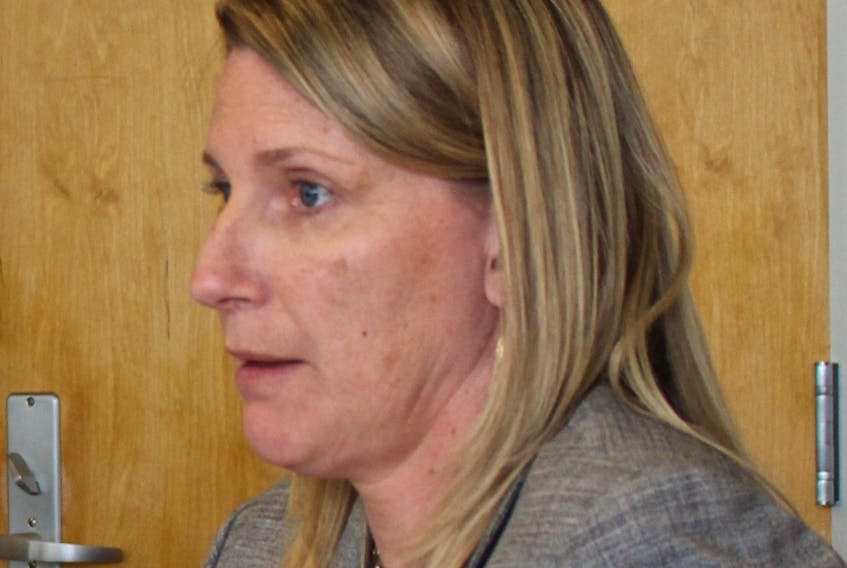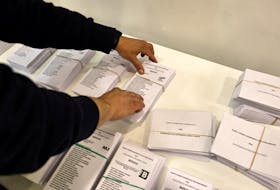According to a report of the Superintendent of Insurance for Newfoundland and Labrador, insurance companies in the province collected about $92 million more in auto insurance premiums in 2017 than was paid out in claims.
That, says the Insult to Injury Campaign to Protect Accident Victims, makes for an excessive profit.
The Insurance Bureau of Canada (IBC), however, says the number does not factor in the enormous cost of operating an insurance business in the province.
The Superintendent of Insurance’s report, filed Nov. 9, shows insurance business transactions in Newfoundland and Labrador for the year ended Dec. 31, 2017.
200 insurance companies in province
It notes that there were 200 insurance companies licensed to operate in the province in 2017, including companies covering life, accident and sickness, and auto and home insurance.
Valerie Hynes, a lawyer with the Insult to Injury Campaign to Protect Accident Victims, said the $92 million reported represents an underwriting profit of more than 21 per cent.
She said that despite the insurance industry claiming it is losing money in Newfoundland and Labrador, the provincial report shows a profit of approximately $56 million for third party liability insurance, $35 million in property damage insurance, and $1 million in profits for accident benefits coverage sold.
“They certainly want you to believe they are losing money but clearly this latest report continues to support other expert opinion that the amount of money collected in auto
insurance premiums — and investment returns on those premiums — far exceeds the amount paid out,” Hynes said in a news release.
Amanda Dean, IBC’s vice-president Atlantic, however, said Hynes is not factoring in the operating costs.

“What that ($92 million number) is, is a subtraction of claims from premiums. So that does not indicate profit because, out of that amount, comes the cost of doing business,” Dean said.
“For example, it does not include the cost of paying commission to those Newfoundlanders and Labradorians who work within the industry, nor does it include operating costs such as building rents, power bills, certain employee salaries, in addition to provincial and municipal taxes.”
The province’s Public Utilities Board (PUB) is expected to present a report to the provincial government this fall after its review of the auto insurance industry in Newfoundland and Labrador.
Many submissions included in review
The review included numerous submissions from various interested parties and individuals, and a string of public hearings where witnesses offered testimony and were questioned by lawyers representing various stakeholders.
The PUB was asked by the provincial government to report on a number of issues with respect to automobile insurance, including the reasons behind increasing claims costs for private passenger vehicles and taxi operators, and options to reduce the costs.
The PUB was specifically asked to examine the impact on rates and implications for claimants of introducing a monetary cap on claims for non-economic loss for minor/mild injuries or continuing with the current deductible of $2,500, or increasing the deductible.
The IBC maintains that the imposition of a $5,000 cap — plus other reforms that will give accident victims faster access to health care and a quicker recovery — is the best option to stabilize insurance premiums and one day see a reduction in rates.
Lawyers representing accident victims say it is the accident victim who will lose the right to sue for fair compensation should a compensation cap be imposed.
Consumer advocate’s report
The province’s consumer advocate, Dennis Browne, has stated in his final submission to the PUB that it is difficult to conclude that the introduction of a cap would be an improvement or translate into long-term, stable rates for consumers.
He preferred the option of increasing the current deductible.
“We want consumers to know that, the truth is, the insurance industry is very profitable in Newfoundland and Labrador, and a cap or even an increased deductible will do nothing except ensure industry keeps even more of your money.”
- Valerie Hynes, lawyer,
Insult to Injury Campaign to Protect Accident Victims
Hynes said the insurance industry has been lobbying the provincial government to implement a cap to minimize the payout to innocent accident victims injured by reckless drivers.
“We find it offensive and unacceptable that the insurance industry simply wants to make even more money, not find a way to lower premiums for its customers and take away fair compensation and the rights of accident victims,” she said.
“We want consumers to know that, the truth is, the insurance industry is very profitable in Newfoundland and Labrador, and a cap or even an increased deductible will do nothing except ensure industry keeps even more of your money.”
Dean said that the issue of amount of profit came up a number of times during the PUB hearings.
She used an example that when a lawyer gets his/her 30 per cent when an insurance claim is settled for their client, the 30 per cent is not purely profit for the law firm. She said out of that comes staff salaries that have to be paid, advertising and rent, and other bills.
“I think the superintendent’s report is pretty clear in that they do not include data on operating costs within the province in that report,” Dean said. “I can certainly see from a consumers perspective how that can be an alarming number but to suggest that Newfoundlanders and Labradorians working in the insurance industry do not deserve to be paid for the work they do in helping people get back on their feet following a tragic event is outrageous.”









